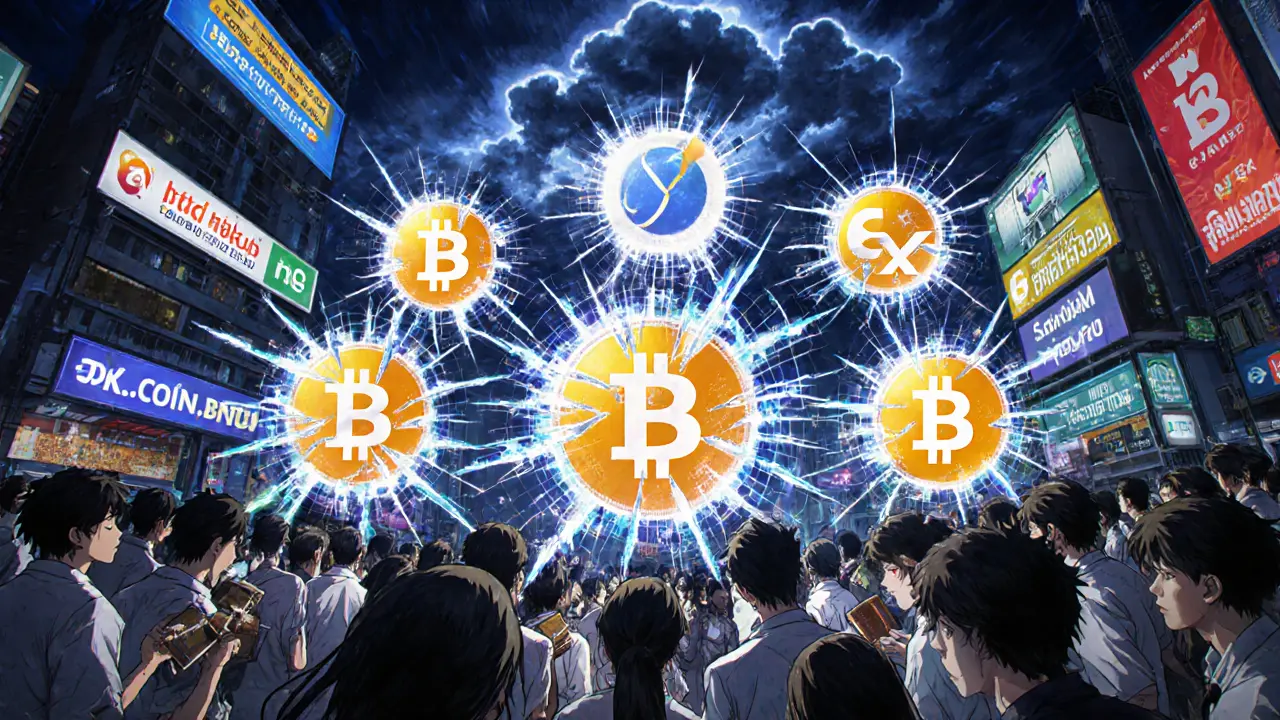

When people talk about the Thailand crypto ban, a set of regulatory restrictions imposed by Thai authorities to control unlicensed digital asset activities. Also known as crypto crackdown in Thailand, it’s not a full ban on owning or using crypto—it’s a ban on unregulated trading, marketing, and exchanges targeting Thai residents. The Thai SEC didn’t outlaw Bitcoin or Ethereum. They shut down platforms that didn’t follow the rules—no license, no access. This matters because Thailand was once one of Asia’s most active crypto markets, with millions using apps like Bitkub and Satang Pro to trade, earn interest, and even pay for coffee with crypto.
What got banned? Any platform without a Thai crypto exchange license. That meant dozens of foreign platforms—like Binance, KuCoin, and others—had to block Thai users or risk fines. The government also cracked down on influencer-led crypto promotions, where YouTubers and TikTokers pushed high-risk tokens with fake promises. These weren’t just scams—they were financial traps for ordinary people. The crypto exchange restrictions, rules requiring platforms to register with Thailand’s SEC and comply with KYC, AML, and capital reserve requirements forced even local exchanges to upgrade their systems. Meanwhile, the crypto tax Thailand, a framework requiring all crypto gains to be reported and taxed as income or capital gains came into full force in 2023. Now, if you sell Bitcoin for a profit, you owe taxes. No exceptions.
So what’s left? Legit platforms. Bitkub, Satang Pro, and a handful of others now operate under full SEC supervision. You can still buy, hold, and trade—but only through approved channels. Airdrops? They’re still around, but if the project isn’t registered, it’s legally risky. Even holding unlicensed tokens could be flagged. The real shift? Thailand moved from a wild west crypto scene to a tightly controlled financial zone. It’s not about stopping crypto—it’s about controlling who gets to profit from it. And that’s why you’ll find so many articles here about scams, fake airdrops, and unregulated tokens. They’re the exact same projects that got banned in Thailand—and still target people in places with weaker rules.
If you’re trading crypto from Thailand—or thinking about it—you need to know what’s legal, what’s dangerous, and where the real risks hide. Below, you’ll find real breakdowns of tokens that vanished after regulatory pressure, exchanges that got shut down, and how people are still finding ways to trade under the radar. This isn’t theory. These are the stories of what happened when the rules changed—and what it means for your wallet.

Thailand banned five major foreign P2P crypto platforms in 2025 to fight fraud and money laundering. Only licensed local exchanges can now operate, forcing users to switch and reshaping the country's digital finance future.